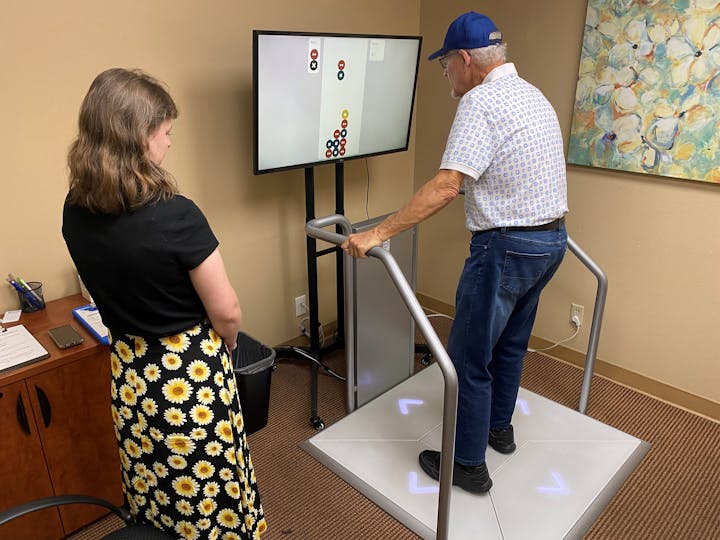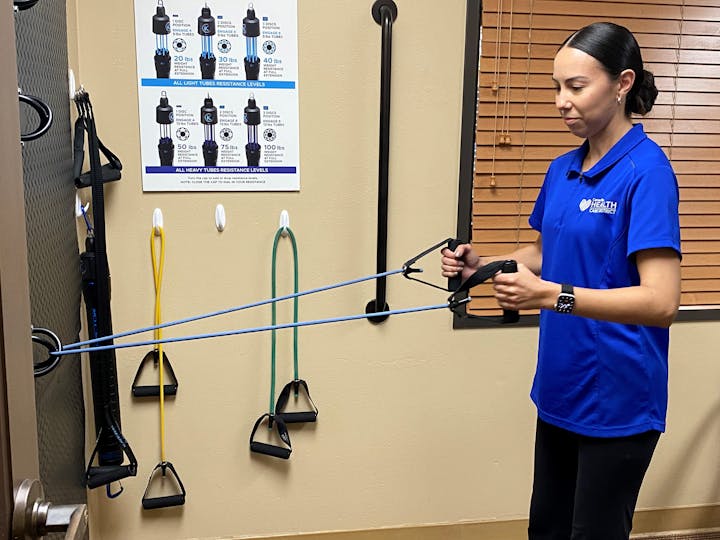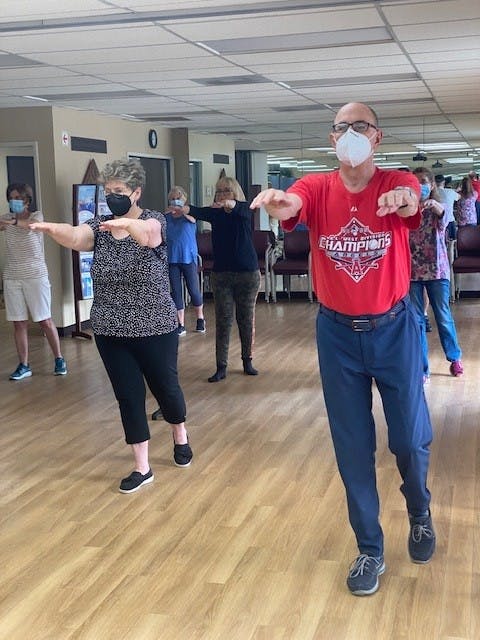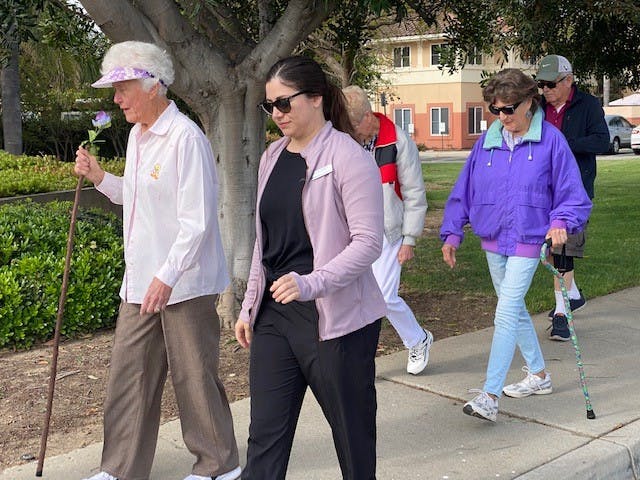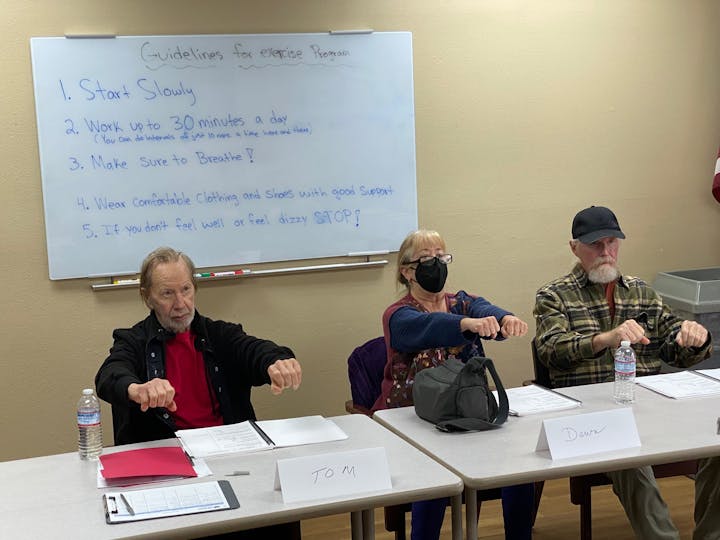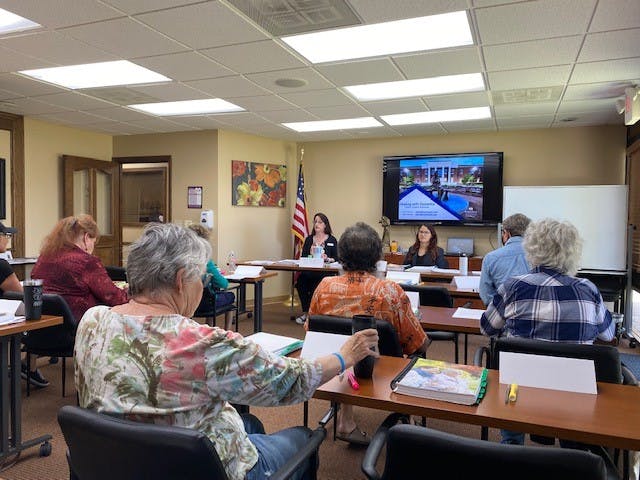BALANCEfit: Program helps reduce fall risks, improve cognitition
The Camarillo Health Care District is offering no-cost, one-on-one training on the balance machine. The twice-a-week, eight-week BALANCEfit program aims to reduce fall risk and improve cognition while progressing participants through a series of games that get more complex and challenging as people move through the program. Games are focused on various cognitive and physical skills, from natural cognitive tasks that may be second nature to some people and a challenge to others with some sort of cognitive impairment.
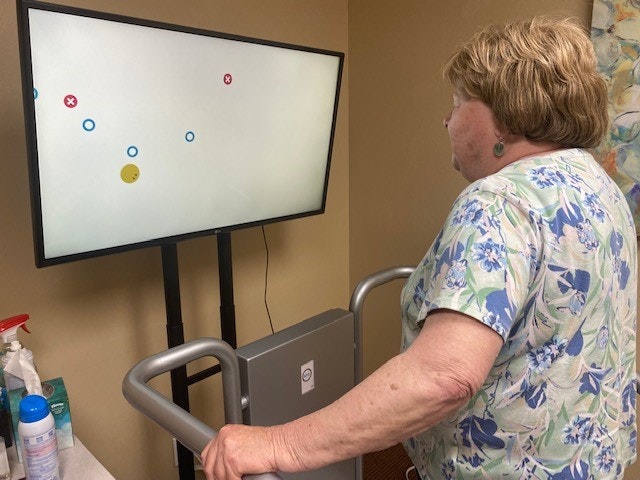
“As we get older, our executive function slows. Because of that, people’s response is not as quick, and we are more prone to falls. Also, we know from studies the more afraid you are of falling, the more likely you are to fall. So, the idea of the Senso balance machine is to use your executive function at the same time as you are improving your motor control,” said Casey Kramer, a health promotion coach and one of five trained facilitators. “Basically, it’s the dual tasking of working on your fall reduction and working on your cognition.
A total of 37.5 percent of the District’s participants have reported a decrease of fear in falling after the program, Kramer said. And clients are seeing gains in reaction time. The program is fully adaptable for an individual based on their cognitive or physical level. A coach can manipulate duration and frequency of the tasks.
- A total 69 percent agree or strongly agree they now feel more confident when walking and navigating spaces.
- 37.5 percent report a decrease of fear in falling after participating in the program.
- 75 percent agree or strongly agree their ability to understand and process directions has improved.
- 80 percent feel more confident increasing their activity.
- 63 percent feel more satisfied with their life.
- 56 percent would recommend the program to a friend or relative.
- Overall satisfaction with the quality of program stands at 44 percent “very satisfied” and 56 percent “satisfied.”
The balance machine also tracks the participant’s performance and adjusts each game to an appropriate challenge level. The games can be personalized. For instance, the facilitator can adjust the program if the participant has weakness in one leg, so the weakness can be targeted to decrease any discrepancy in strength between the two.
The average age of participants was 80 between January and March 2022. According to the CDC, falls are common among Americans 65 and older. One out of four older adults will fall each year in the United States, making falls a public health concern, particularly among the aging population. Each year, about 3 million older adults are treated in emergency departments for a fall injury.
Older adults — and especially those at risk of falling — have an impaired ability to start and execute quick steps, particularly in situations where attention is divided. One example is getting things out of the refrigerator and then the doorbell rings, and you turn quickly, stumble and fall. Studies show that if you combine brain training and physical training (dual tasking), it improves performance in both cognitive function and step execution, and that reduces the rate of falls. Keeping track of reaction time and errors and clients seeing gains in reaction time.
“Overall, we are seeing a decrease in reaction time and that’s good. In a situation where someone is feeling off balance they are able to respond quicker and hopefully prevent a fall.”
To sign up for the program, call 805-388-1952.
Balance Machine: How Did You Do?
The Senso balance machine was debuted in 2022 and results are positive. The Senso balance machine, part of our BALANCEfit program, is a scientifically based dual-tasking fall reduction and cognitive training platform designed to support independence. Dual tasking improves cognition better than physical exercise alone and improves the ability to do activities of daily living, heightens mood and reduces depression, and studies have shown that dual tasking can also help people with mild cognitive impairment and early-stage dementia.
In the debut cycle, participants enrolled in a customized program working on the machine twice a week for eight weeks, while their personal data fob collected and measured responses and progress. The data box (left) reflects results from the first seven months of the program; the average age of participants was 79.
In addition to the pre and post testing for success of the exercises, participants were asked how satisfied they were with the program and the results of their exercises. The program received a 100 percent satisfaction rate, with 97 percent saying they would recommend the program. Additional comments were as follows:
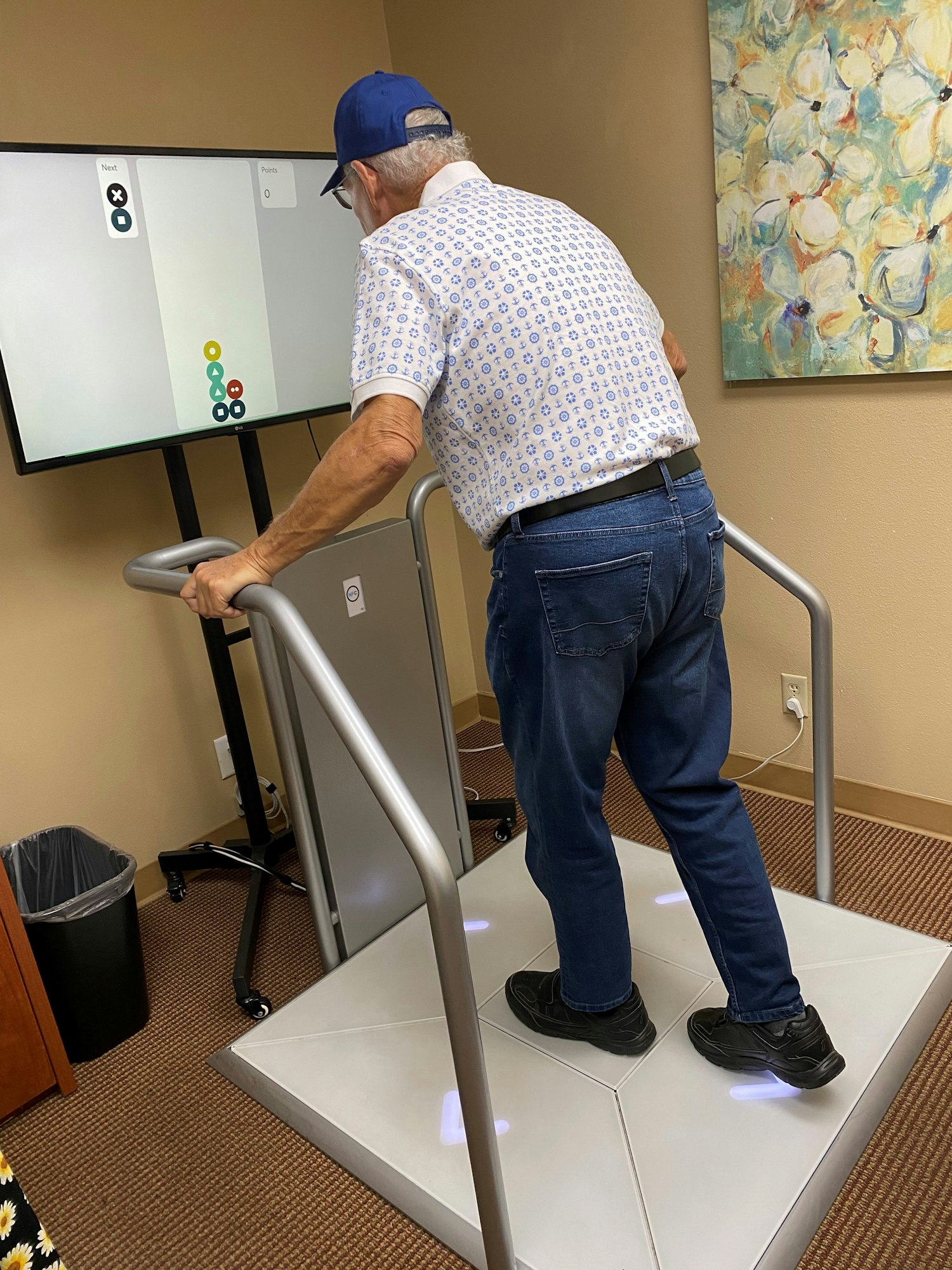
- They feel more confident when walking and navigating spaces.
- They feel their ability to understand and process directions has improved.
- They feel more comfortable increasing their activity.
- They feel more satisfied with life.
“We know that as we age, natural brain changes occur, and mobility and reaction time can become affected. Many daily activities involve two or more cognitive and motor tasks at the same time. This program challenges those same areas of the brain that we use for our activities of daily living,” said Lynette Harvey, RN, Clinical Services director at the District. “The goal of this program is for individuals to work from their own baseline/ability and improve both their cognitive functions while reducing their fall risk.”
The District’s array of fall prevention classes and programs continue to help people with strength training, confidence building and establishing manageable exercise routines. The addition of the Senso balance machine has offered a “next step” service in living strongly. Graduates of the Senso balance machine are invited to build on their hard work by taking Tai Chi for Arthritis, Matter of Balance, Bingocize, and joining our walking group.
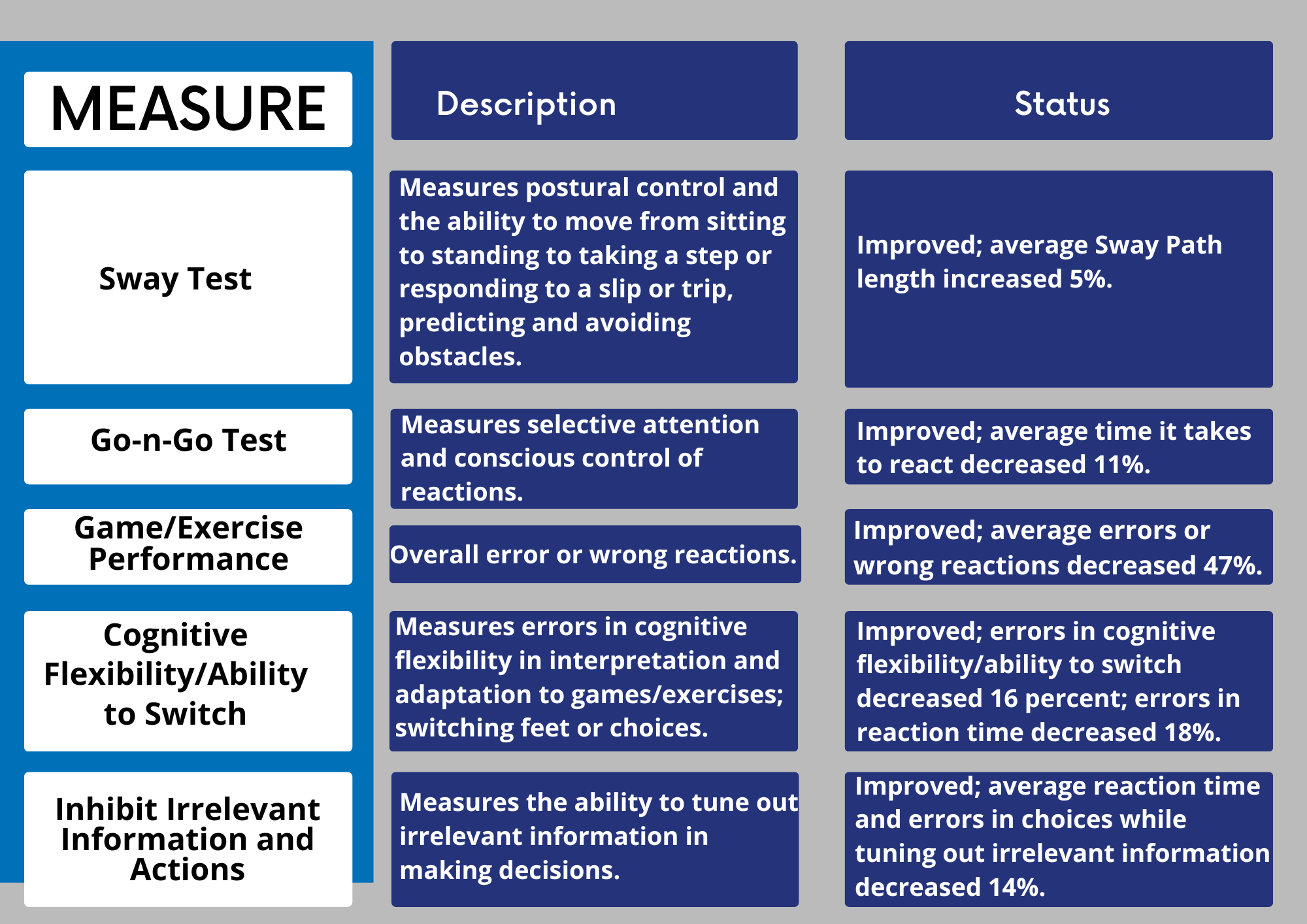
We partnered with Senso maker Dividat to produce this study
Read the case study we are featured in on Senso creator Dividat's website. Among the highlights:
- Raise awareness, knowledge and best practices for Camarillo community older adults to improve their overall health and wellbeing while reducing fall risk.
- Improve reaction time, attention and processing, short term memory, balance control and cognitive and physical flexibility.
- Use standardized tests to include the Flexibility Test, Go-NoGo Test, Stroop Test, and Sway Test using the Dividat Senso, SPPB and 6CIT for pre and post assessment and values.
- Build confidence, increase daily activity level, and improve physical and mental capacities that will activate the pursuit of additional programs and activities that foster independence.



